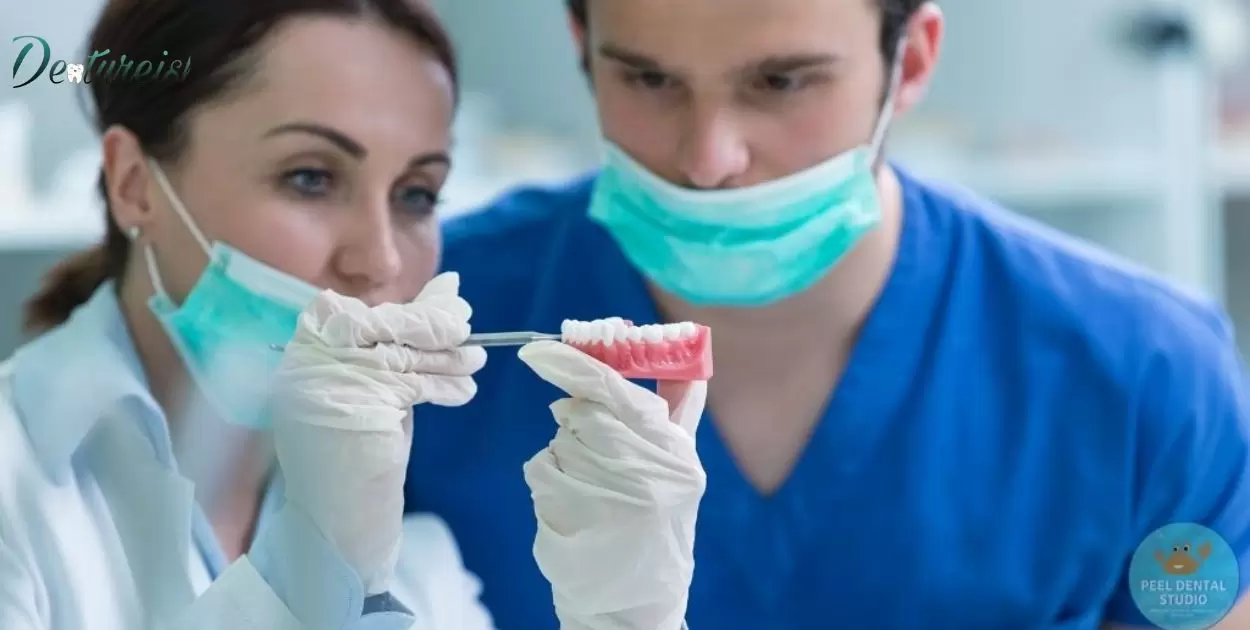Get dentures” refers to the process of acquiring artificial teeth to replace natural ones that may be missing or damaged. Dentures are custom-made prosthetic devices that help restore oral function, improve appearance, and support overall oral health.
Curious about improving your smile and oral health? Wondering, ‘How long does it take to get dentures?’ Discover the answer and take the first step towards a brighter, more confident you. Embrace the journey to a revitalized smile—schedule a consultation today and let the transformation begin!
The timeline for getting dentures varies, but it typically takes several weeks. The process involves multiple appointments for impressions, fittings, and adjustments. Your dentist will guide you through each step, ensuring a comfortable and personalized fit for your new dentures.
Why Does It Take So Long To Make Dentures
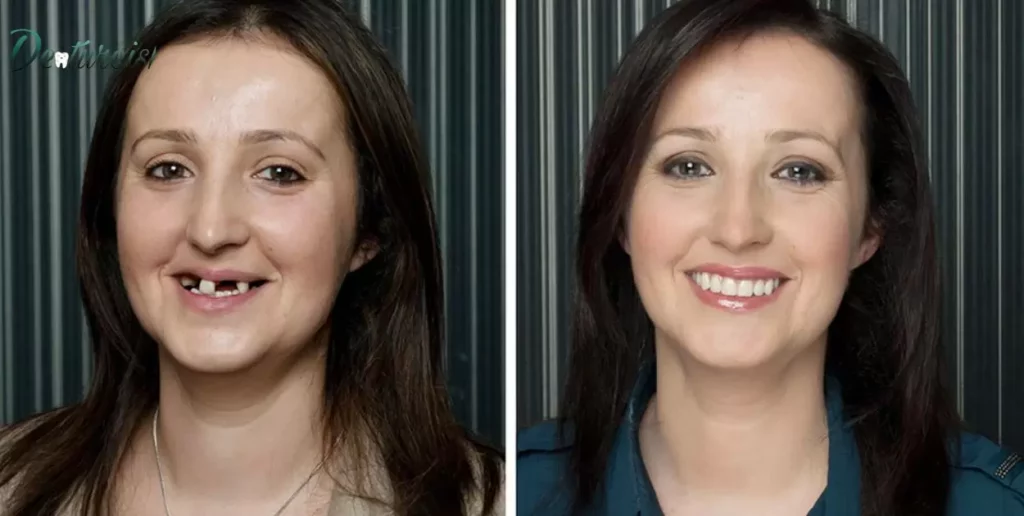
Making dentures takes time because it involves several precise steps. First, the dentist takes impressions of your mouth to create accurate molds. Then, skilled technicians use these molds to craft a custom-fit base. Afterward, they carefully add individual prosthetic teeth, ensuring proper alignment and appearance.
The meticulous process guarantees that your dentures fit comfortably and look natural. Additionally, the materials used need time to set and harden, ensuring durability. This detailed craftsmanship is essential to provide patients with functional and aesthetically pleasing dentures, explaining why the process takes time.
What Are Dentures?
Dentures are artificial teeth and gums that replace missing natural teeth. They are custom-made to fit snugly in your mouth, offering a comfortable and functional solution for those with tooth loss. Dentures can be either full, replacing all teeth, or partial, filling gaps in your smile.
These prosthetic devices help improve chewing ability, speech, and overall facial appearance. Dentures are crafted from durable materials, providing a lasting solution for restoring your smile and maintaining oral health.
Complete Dentures
Complete dentures are removable replacements for missing teeth. Dentists create them to restore both function and appearance. Patients wear complete dentures when they’ve lost all their natural teeth, providing improved chewing ability and a natural-looking smile. Regular check-ups with the dentist ensure the proper fit and comfort of complete dentures, enhancing overall oral health.
Partial Dentures
Partial dentures are removable dental appliances used to replace missing teeth. Dentists design them to fit comfortably in your mouth and restore your smile’s natural appearance. These prosthetics can enhance chewing function and speech while providing a cost-effective solution for individuals with a few missing teeth. Regular cleaning and proper care help maintain their longevity and ensure optimal oral health.
Initial Consultation with Dentist
When you have your first meeting with the dentist, it’s called the initial consultation. During this visit, you and the dentist discuss your dental health. The dentist examines your teeth and gums, and together, you create a plan for any necessary treatments. This consultation sets the foundation for a healthy dental journey.
In the initial consultation with the dentist, you share your dental concerns. The dentist actively listens, examines your oral health, and collaborates with you on a personalized treatment plan. This appointment marks the beginning of a proactive approach to maintaining a healthy and vibrant smile.
Dental Examination and Assessment
Dental examinations are crucial for assessing dentures. Dentists examine the condition of dentures carefully. They check for wear, stability, and overall fit.
During the assessment, dentists inspect the bite and alignment of the dentures. They ensure that the dentures provide proper functionality. Regular dental examinations, especially for Implants After Dentures, help maintain oral health and ensure the effectiveness of dentures. It’s important to schedule these check-ups to address any issues promptly and keep your smile healthy.
Customizing Dentures for Individuals
Dentures get personalized for each person, ensuring a comfortable fit. Dental experts create custom dentures by considering the unique shape of an individual’s mouth. This customization enhances comfort and functionality, providing a tailored solution for each patient.
Individualized dentures involve a detailed examination of the patient’s oral structure. Dentists use this information to craft dentures that match the person’s specific needs, promoting better oral health and a natural feel.
Impressions and Molds Process
Creating dentures involves an Impressions and Molds Process. First, the dentist takes a precise impression of the patient’s gums using a soft material. Then, a mold is made from this impression, capturing the unique contours of the mouth.
Next, the denture material is carefully poured into the mold, shaping the artificial teeth and gums. After the material sets, the denture is polished to ensure a comfortable fit. This straightforward process allows for the creation of customized dentures tailored to the individual’s oral anatomy.
The Importance Of Dentures To Your Oral Health

Dentures play a crucial role in maintaining good oral health. These removable appliances help restore the functionality of missing teeth, enabling proper chewing and digestion. Regular use of dentures not only improves speech but also prevents the shifting of remaining teeth, ensuring a balanced bite and reducing the risk of oral health issues. Taking care of your dentures with proper cleaning and maintenance is essential for a healthy and confident smile.
Improve Self-Confidence
Boost your self-confidence with improved dentures. Upgrade your smile, enhance your appearance, and feel more self-assured. Invest in a better version of yourself by upgrading your denture for a confidence boost.
Fill The Gaps In Your Teeth
Do you have gaps in your teeth? Dental implants can fill those spaces, restoring your smile and confidence. With this solution, you’ll enjoy a complete and beautiful set of teeth, enhancing both your appearance and oral health.
Improve Chewing Ability
Enhance your chewing ability with dentures. These custom-fit replacements for missing teeth restore your bite, making eating easier and more enjoyable. Say goodbye to discomfort and hello to improved oral function.
Improve Speaking Problems
Do dentures make speaking challenging? Improve speaking problems with better-fitted dentures. Enhance your communication and regain confidence in your daily conversations.
Improve Oral Health
Regularly clean your dentures with a soft brush and mild soap to remove plaque and bacteria. This simple routine helps improve your oral health and keeps your dentures fresh.
Visit your dentist for regular check-ups to ensure your dentures fit well and address any issues promptly. Taking proactive steps in caring for your dentures contributes to a healthier and more comfortable oral experience.
Durable
A durable denture is a strong and long-lasting dental appliance. It helps people regain their ability to chew and speak comfortably, providing a reliable solution for missing teeth.
These dentures are crafted from sturdy materials, ensuring they withstand daily wear and tear. With proper care, a durable denture can offer lasting comfort and functionality, promoting confidence and a natural smile.
Precision and Digital Denture Techniques
Precision denture techniques use advanced technology to create dentures with exacting accuracy. Digital methods streamline the process, allowing for precise measurements and custom fits, enhancing overall comfort for dental patients.
In digital denture techniques, computer-aided design and manufacturing ensure a seamless workflow. Dentists can now achieve optimal precision in crafting dentures, resulting in improved functionality and a natural aesthetic for patients.
What Are The Common Types Of Dentures Available?
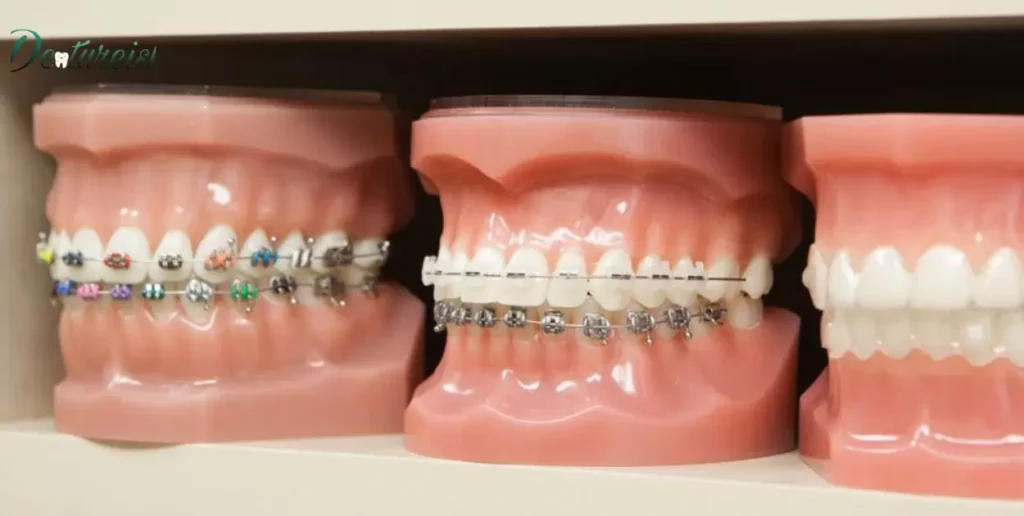
There are several common types of dentures. Full dentures replace all teeth, while partial dentures fill gaps in specific areas. Another option is immediate dentures, which are placed right after tooth extraction for immediate use. Each type offers a solution based on individual dental needs.
Complete Dentures
Complete dentures are removable artificial teeth. Dentists create them to replace missing teeth. People wear them to improve their appearance and ability to eat. Regular cleaning and care are essential for maintaining complete dentures.
Partial Dentures
Partial dentures are removable dental appliances used to replace missing teeth. Dentists design them to fit comfortably in your mouth, restoring both function and aesthetics. These prosthetics consist of replacement teeth attached to a pink or gum-colored base, providing a natural appearance while improving chewing ability.
Immediate Dentures
Immediate dentures are a quick solution for replacing missing teeth. Dentists make these dentures before removing any remaining natural teeth. Patients get their new teeth on the same day, ensuring a seamless transition and immediate restoration of their smile.
Implant-Supported Dentures
Implant-supported dentures are a modern dental solution. Dentists use implants to anchor the dentures securely in the jaw. This provides stability, comfort, and improved chewing ability for people with missing teeth. Unlike traditional dentures, implant-supported ones don’t rely on adhesives and offer a more natural feel.
Timeline for Conventional Dentures
The timeline for conventional dentures begins with an initial dental assessment. During this stage, the dentist examines your oral health and discusses the denture options suitable for you.
After the assessment, the next step involves taking impressions of your gums and remaining teeth. These impressions help create a custom mold for your dentures, ensuring a comfortable fit. Once the mold is ready, the dentist proceeds to the fabrication stage, crafting the dentures to match your natural teeth and facial features.
What Is The Procedure For Getting New Dentures?
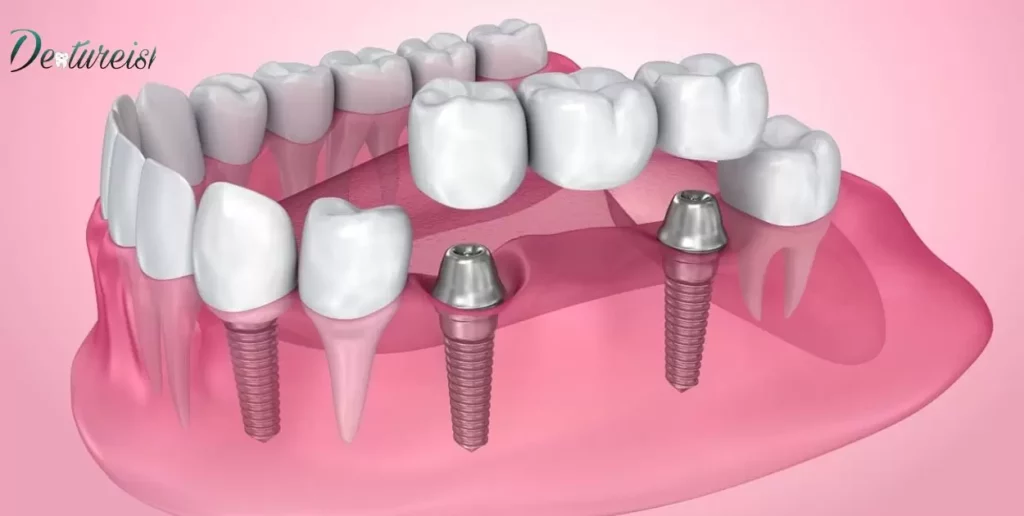
To get new dentures, first, schedule an appointment with your dentist. During the visit, they will examine your oral health and take impressions of your mouth. Afterward, the impressions are used to create custom dentures, ensuring a comfortable fit.
Once ready, your dentist will make any necessary adjustments to ensure your new dentures feel natural and function well, providing you with a confident smile and improved oral function.
Point# 1 – The Appointment And Treatment Plan
The dentist scheduled an appointment and discussed the treatment plan for the denture. During the appointment, the dentist explained the steps and options for creating the denture, ensuring a clear understanding of the process. The patient actively participated in the decision-making, making the overall experience straightforward and informative.
Point # 2 – Extracting Teeth
Extracting teeth is a common dental procedure. Dentists remove teeth when they are damaged or causing pain. The process is quick and typically done with local anesthesia to ensure patient comfort.
Point # 3 – Taking Impressions
Creating dentures involves taking impressions of the patient’s mouth. Dentists use a soft material to capture the shape and size of the gums. This crucial step ensures a comfortable and precise fit for the dentures, providing patients with improved oral function and a natural-looking smile.
Point # 4 – Final Denture Fitting
When fitting final dentures, the dentist ensures a snug and comfortable fit. They carefully assess the bite and alignment for optimal functionality. The patient actively participates in the process, providing valuable feedback for personalized adjustments. The final denture fitting marks the completion of the journey, restoring both function and confidence to the wearer.
Point # 5 – Getting Used To Wearing Your Dentures
Adjusting to wearing dentures takes time. Initially, you may experience discomfort or difficulty speaking. However, with practice and patience, you’ll become more comfortable, and your speech and confidence will improve. Regular cleaning and proper care ensure a smoother transition to a more natural feeling with your dentures.
Point # 6 – Proper Dental Care
Taking care of your teeth is essential for a healthy smile. Brush your teeth twice a day to remove plaque and prevent cavities. Regular dental check-ups help catch issues early, ensuring a brighter and healthier future for your teeth.
Immediate Dentures and Quick Solutions
Immediate dentures provide a fast solution for people who need their teeth replaced quickly. Dentists create these dentures before extracting the remaining natural teeth. Patients can leave the dental office with a complete set of teeth on the same day, ensuring they don’t have to go without teeth during the healing process.
The quick turnaround of immediate dentures makes them a popular choice for those who value convenience. This option allows individuals to maintain their appearance and function, providing a swift and efficient solution for tooth replacement.
Common Challenges During the Process
- Identifying common challenges during the process helps in proactive problem-solving.
- Recognizing challenges allows for better planning and resource allocation.
- Addressing challenges fosters a smoother and more efficient workflow.
- Learning from challenges promotes continuous improvement and skill development.
- Overcoming obstacles enhances overall project success and satisfaction.
How Long Does It Take To Have A Set Of Dentures Made?
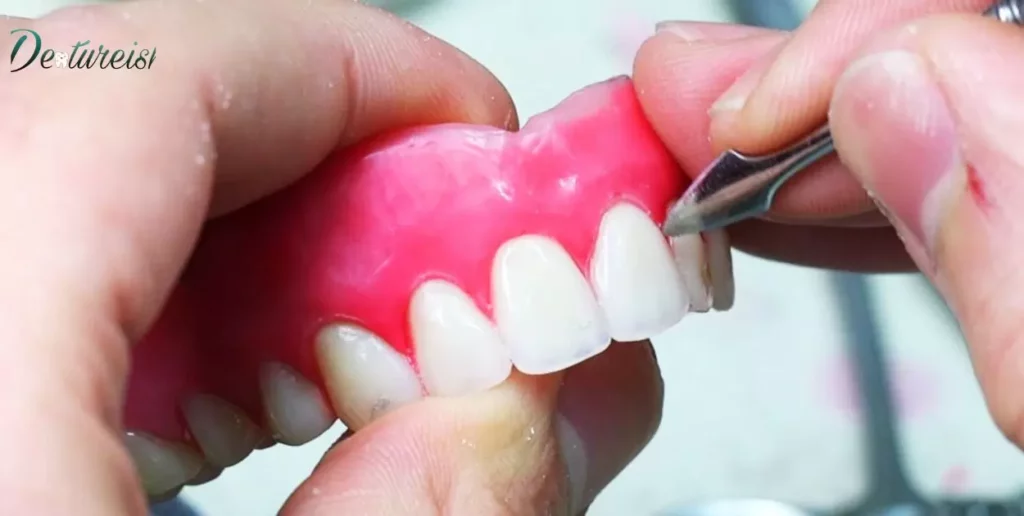
Making a new set of dentures typically takes between three and six weeks. It might take longer, though, if you require a complete or partial denture, how lengthy the healing period is following tooth extraction, and whether you need a tooth extraction.
Potential Delays in the Denture Process
Delays in making dentures can happen. Dentists may need more time due to high demand or unexpected issues. Keep communication open with your dentist for a smoother denture process.
Sometimes, material shortages can cause delays. Confirm the availability of materials beforehand to avoid unexpected setbacks in getting your dentures on time.
Why Do Dentures Take So Long To Make?

Making dentures is a meticulous process that involves multiple steps. First, the dentist takes impressions of your mouth to create an accurate mold. Then, a skilled technician uses this mold to craft the dentures with precision.
The time-consuming aspect arises from the need for careful customization. Each denture is unique to fit your mouth perfectly, ensuring comfort and functionality. This detailed approach, coupled with quality checks, ensures that your dentures are tailored to your individual needs, explaining why the process takes time.
Customized Dentures
Customized dentures are personalized to fit your unique mouth shape. Dentists create them based on precise measurements for a comfortable and secure fit.
These dentures improve both functionality and aesthetics. They enable better chewing and speaking while looking natural, boosting your confidence and overall oral well-being.
Bite Registration By Pin Tracing
Bite registration with pin tracing for dentures is a crucial step in ensuring a precise and comfortable fit. Dentists use special pins to record the patient’s natural bite, allowing for accurate alignment of the upper and lower dentures.
This technique enhances the overall stability and functionality of the dentures, ensuring that patients can comfortably eat, speak, and smile with confidence. Pin tracing bite registration is a simple yet effective method that plays a key role in creating well-fitted dentures for improved oral function and patient satisfaction.
Educational Session: Caring for Your Dentures
Here’s a simple table related to the keyword “Educational Session: Caring for Your Dentures”:
| Topic | Details |
| Session Title | Educational Session: Caring for Your Dentures |
| Date and Time | [Insert date and time] |
| Location | [Insert venue or online platform] |
| Presenter | [Insert name and credentials of the presenter] |
| Agenda | 1. Introduction to Dentures |
| 2. Types of Dentures | |
| 3. Proper Cleaning Techniques | |
| 4. Handling and Storing Dentures | |
| 5. Common Issues and Troubleshooting | |
| 6. Q&A Session | |
| Target Audience | – Denture wearers |
| – Caregivers | |
| – Anyone interested in denture care | |
| Purpose | To educate participants on the importance of proper denture care and provide practical tips for maintenance. |
| Registration Information | [Include instructions for registration, if applicable] |
| Materials | Handouts, visual aids, and resources for further learning |
| Contact Information | [Provide contact details for inquiries] |
Feel free to customize the table based on your specific needs or event details.
Appointment For Multiple Waxings
Schedule your appointments for multiple denture waxings. Our skilled professionals ensure a comfortable experience and precise fittings, enhancing the functionality and aesthetics of your dentures.
Experience the convenience of efficient, tailored denture services. Book your appointments now for a series of waxings, guaranteeing optimal comfort and a confident smile.
Additional Appointments
Extra appointments are necessary for dentures. Dentists schedule these appointments to ensure proper fit and comfort for patients.
Regular check-ups and adjustments are crucial with additional appointments. These visits help maintain the functionality and overall satisfaction of dentures for individuals.”
Cost Factors and Insurance Considerations
Dentures involve various costs and insurance considerations. The price of dentures depends on factors such as materials used and the complexity of the dental procedure. Patients should explore insurance coverage options to alleviate some of the financial burden associated with dentures.
When considering dentures, understanding cost factors is crucial. Dental insurance plans may cover a portion of the expenses, but it’s essential to check the policy details. The type of dentures chosen, like partial or full, affects overall costs.
What Will It Be Like To Have New Dentures Fitted?
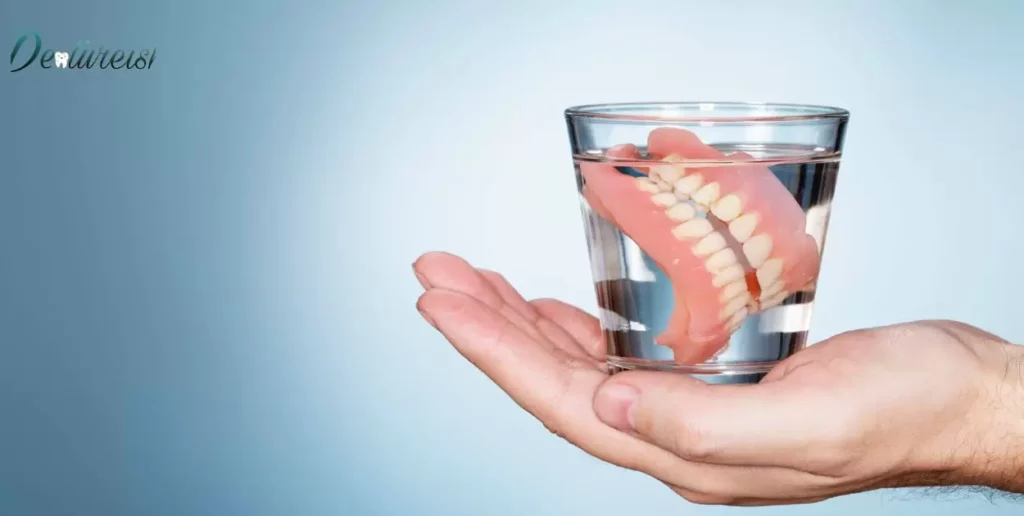
Getting new dentures is an exciting change. Your dentist will carefully fit them, ensuring comfort and a natural look. You’ll soon enjoy a confident smile and improved chewing ability.
Adjusting to new dentures takes a bit of time. Initially, speech may feel different, but with practice, you’ll speak comfortably again. Regular check-ups will ensure your dentures remain a perfect fit, ensuring a happy and healthy smile.
How Long Do Dentures Last
Dentures typically last 5 to 7 years. Regular check-ups with a dentist help ensure they fit well and last longer. Daily cleaning and proper care are crucial for maintaining their lifespan.
Factors such as wear and changes in the mouth affect denture longevity. Over time, adjustments or replacements may be needed for optimal comfort and functionality. Regular dental care plays a key role in ensuring the lasting performance of dentures.
How Can You Tell If Your Dentures Are Properly Fitted?

If your dentures fit well, they shouldn’t hurt or slip. Check for any sore spots or discomfort when you chew or talk. A snug fit ensures you can confidently enjoy daily activities without worry.
Sign #1: Slipping
The slipping denture can cause discomfort and embarrassment. It affects daily activities like eating and speaking. Regular check-ups and adjustments by a dentist can help prevent this issue.
Sign #2: Mouth Sores
Mouth sores from dentures can be uncomfortable. Dentures sometimes cause irritation, leading to painful sores in the mouth. Proper denture care can help prevent these discomforts.
Sign #3: Constant Pain
Wearing dentures can cause constant pain for some people. The discomfort often stems from ill-fitting dentures rubbing against the gums. Regular adjustments and proper maintenance can alleviate this persistent pain associated with dentures.
Sign #4: Having Trouble Eating
Eating with dentures can be challenging. Dentures may feel uncomfortable or loose, making it difficult to enjoy meals. To improve your experience, consult your dentist for adjustments or consider using denture adhesives for a more secure fit.
Patient Education on Denture Longevity
Denture longevity depends on proper care. Patients must clean dentures daily, avoiding abrasive cleaners to prevent damage. Regular check-ups with the dentist help ensure a longer-lasting, comfortable fit.
Educating patients about denture maintenance is crucial. Emphasizing the importance of gentle cleaning and routine dental visits empowers individuals to take an active role in preserving their dentures. This proactive approach contributes significantly to the overall longevity of dentures.
Are Denture Adhesives Necessary?
Denture adhesives help keep dentures securely in place. They enhance stability while eating or speaking, providing confidence and comfort for denture wearers.
While not always mandatory, denture adhesives offer a practical solution for improved denture performance. Users can decide based on personal preference and the snugness of their dentures.
How Long Does It Take To Make Same Day Dentures
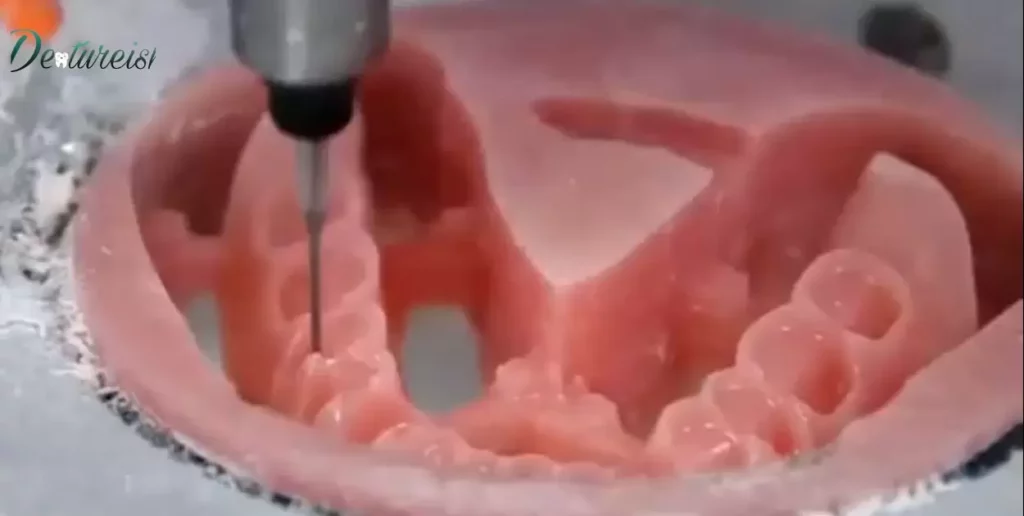
Getting same-day dentures usually takes a few hours. Dentists begin by extracting the remaining teeth and taking impressions. After that, skilled technicians create the dentures on-site, allowing you to leave the dental office with a new smile in a single day.
The process involves multiple steps. First, the dentist examines your oral health and removes any remaining teeth. Then, impressions are taken to ensure a perfect fit. Skilled technicians use these impressions to craft the dentures, which are adjusted for comfort and aesthetics.
How Do You Know When It’s Time To Reline Dentures?
When dentures feel loose or uncomfortable, it’s a sign that they may need relining. Relining is necessary when the fit changes due to natural changes in the jawbone over time. Regular check-ups with a dentist can help determine when it’s time for denture relining.
You can also look for signs like difficulty chewing or speaking, sore spots, and changes in facial appearance. These indicators suggest that the dentures are not fitting properly. Seeking prompt attention from a dentist ensures a comfortable fit, allowing you to enjoy daily activities without any denture-related discomfort.
How Long Does It Take To Get Partial Dentures
Getting partial dentures typically takes a few weeks. First, the dentist examines your mouth and creates impressions. Afterward, a dental laboratory crafts the partial dentures to fit your unique oral structure. Finally, the dentist makes adjustments for a comfortable and natural feel.
The entire process involves a series of appointments. Initially, your dentist assesses your dental health and discusses the partial denture options. Once the impressions are taken, the dental team works efficiently to ensure your partial dentures are ready for fitting in a timely manner.
Frequently Asked Question
How long does it take to get dentures after teeth are pulled?
After teeth are pulled, it usually takes about two to three weeks to receive dentures. The initial healing period allows the gums to recover before the dentist customizes and fits the dentures to ensure a comfortable and secure fit.
Do you have no teeth while waiting for dentures?
No, you don’t have to be without teeth while waiting for dentures. Temporary solutions like immediate dentures can be provided on the same day your natural teeth are extracted, ensuring you have teeth during the waiting period.
What are the stages of getting dentures?
The stages of getting dentures include an initial examination by the dentist, followed by impressions of your teeth and gums. After that, the dentures are custom-made and fitted during subsequent appointments.
How fast can you get immediate dentures?
Immediate dentures can be obtained quickly, often within a day or two. The dentist extracts teeth, and immediate dentures are promptly placed in the same appointment, ensuring you leave with functional teeth while your permanent dentures are being crafted.
Conclusion
The timeline for obtaining dentures varies based on individual factors and the specific type of dentures needed. The initial consultation and examination with the dentist set the process in motion, allowing for a personalized treatment plan.
From there, the fabrication period, which is typically a few weeks, ensures the creation of dentures tailored to the patient’s unique oral requirements. The overall duration is influenced by factors such as the type of dentures, any necessary extractions, and the efficiency of the dental laboratory.
While the process may take some time, the end result is a restored smile that enhances both function and appearance, contributing to improved oral health and overall well-being.

